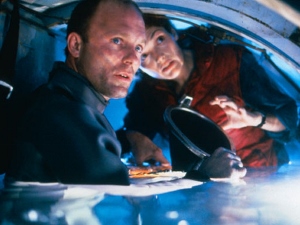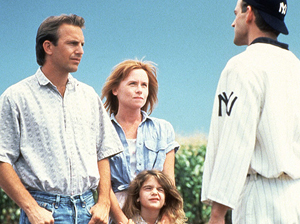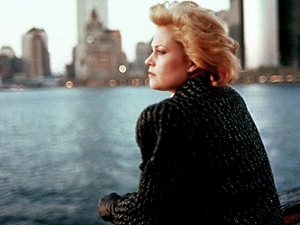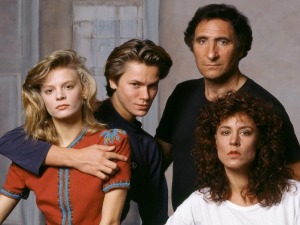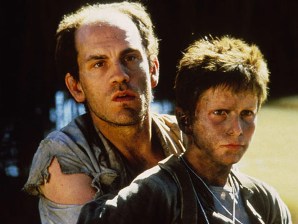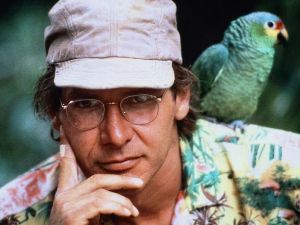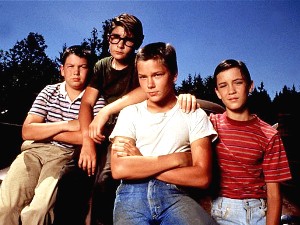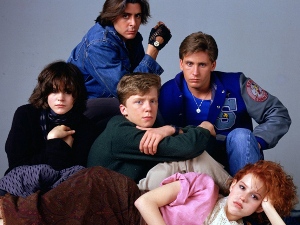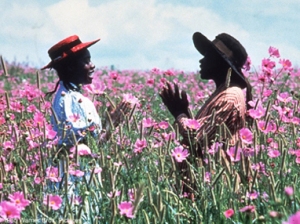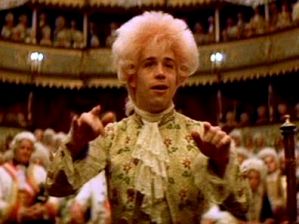Field of Dreams (1989)
[9]
This delicate fantasy about regret and second chances casts a powerful spell that brings many grown men to tears before the credits roll. To that effect, Field of Dreams is a beautiful indictment of the unspoken, unrequited nature of father-son relationships — the main ingredient in any male weepy. It helps that Kevin Costner is the lead. He has an ‘everyman’ quality that allows everyone in the audience to identify with him. And he’s surrounded by a stellar supporting cast that includes Amy Madigan, James Earl Jones, Ray Liotta, and Burt Lancaster.
Working Girl (1988)
Running on Empty (1988)
[10]
Director Sydney Lumet sets the gritty streets of New York aside temporarily and gives us an emotionally stirring family drama about two parents who have to uproot their family every time the feds catch scent of their trail. If they ever get too comfortable, they run the risk of being locked away for an act of protest that accidentally ended in a fatality during the turbulent ’60s. The family’s vagabond routine is put to the ultimate test when the eldest son, played by River Phoenix in an Oscar-nominated performance, comes of age and wants to attend music school. But if he leaves the family, he may never see them again. Running on Empty is an incredibly moving story about family bonds — both suffocating and empowering — and how loving someone sometimes means letting them go.
Empire of the Sun (1987)
[8]
Spielberg explores World War II through the eyes of a young British boy (Christian Bale) separated from his parents in Shanghai and forced to live in a Japanese internment camp. For a director who often celebrates innocence (and sometimes wallows in it), it’s nice to see a darker examination of the subject. In Empire of the Sun, innocence isn’t just lost. It’s almost shattered.
The Mosquito Coast (1986)
[10]
Harrison Ford gives one of his best performances as Allie Fox, an obsessed inventor who moves his family to a Central American jungle to escape what he perceives to be the end of American civilization. Peter Weir (Witness, Dead Poets Society) directs from a screenplay by Paul Schrader (Taxi Driver, Raging Bull), based on the novel by Paul Theroux. We experience the story through the eyes of Fox’s eldest son, Charlie (River Phoenix). Charlie begins the film in awe of his father, but as Allie spirals out of control, putting his family in danger and developing a serious God complex, Charlie begins conspiring with his mother (Helen Mirren) to save the family from their patriarch.
Stand By Me (1986)
[10]
Rob Reiner (This Is Spinal Tap, The Princess Bride) adapts this dark coming-of-age tale from Stephen King, about a band of four boys who embark on a weekend journey to find the body of a missing teenager. Stand By Me is the best film of Reiner’s career, and the best film adaptation of King’s work. It’s a moving, hauntingly nostalgic piece, bolstered with healthy doses of good humor and some of the best adolescent performances ever put to film.
The Breakfast Club (1985)
[10]
Writer/director John Hughes had more box office hits than you can shake a stick at, and while many of them were fun and irreverent fare (like Ferris Bueller’s Day Off or Weird Science), one sticks out above the crowd — his crowning achievement: The Breakfast Club. It’s a low-concept, small-scale production — practically a filmed stage play — about five disparate teenagers who suffer Saturday detention together. There’s the jock (Emilio Estevez), the princess (Molly Ringwald), the nerd (Anthony Michael Hall), the bad boy (Judd Nelson), and the weirdo (Ally Sheedy) — all kids who would never spend one minute of time together under any other circumstances. But tossed together in their school library under the watch of their vindictive principal (Paul Gleason), they are forced to get to know one another.
The Color Purple (1985)
[9]
There’s this thing called the “elasticity of human emotion”, where the harder down you throw people, the higher up they’ll rise. I haven’t seen many movies demonstrate this principle better than The Color Purple. Whoopi Goldberg plays Celie, who we see having two children by her own father before being married off to Mister (Danny Glover), who beats her and convinces her she is ugly. The only person who ever loved her was her sister, Nettie, who Mister banishes from Celie’s life in more ways than one. Her children long since taken away and her sister gone, Celie is one heck of a tragic character. But out of her shame and despair there grows a sense of pride. Her transformation is a powerful one that gives the story universal appeal — who hasn’t felt ugly and unwanted in their lifetime?
Amadeus (1984)
[10]
Straight biographies rarely make great film, but by filtering the subject through another man’s envy, director Milos Forman (One Flew Over the Cuckoo’s Nest) delivers one of the best bio-films I’ve ever seen. This isn’t a film about a composer and his music (how boring would that be?) — it’s a film about an insanely jealous contemporary named Salieri. Salieri, played brilliantly by F. Murray Abraham, turns Mozart’s life and accomplishments into his own personal battle with God. Just watch Abraham pretend to be Mozart’s best friend, all while plotting to destroy him, and you quickly appreciate why the man won an Oscar for his performance.

